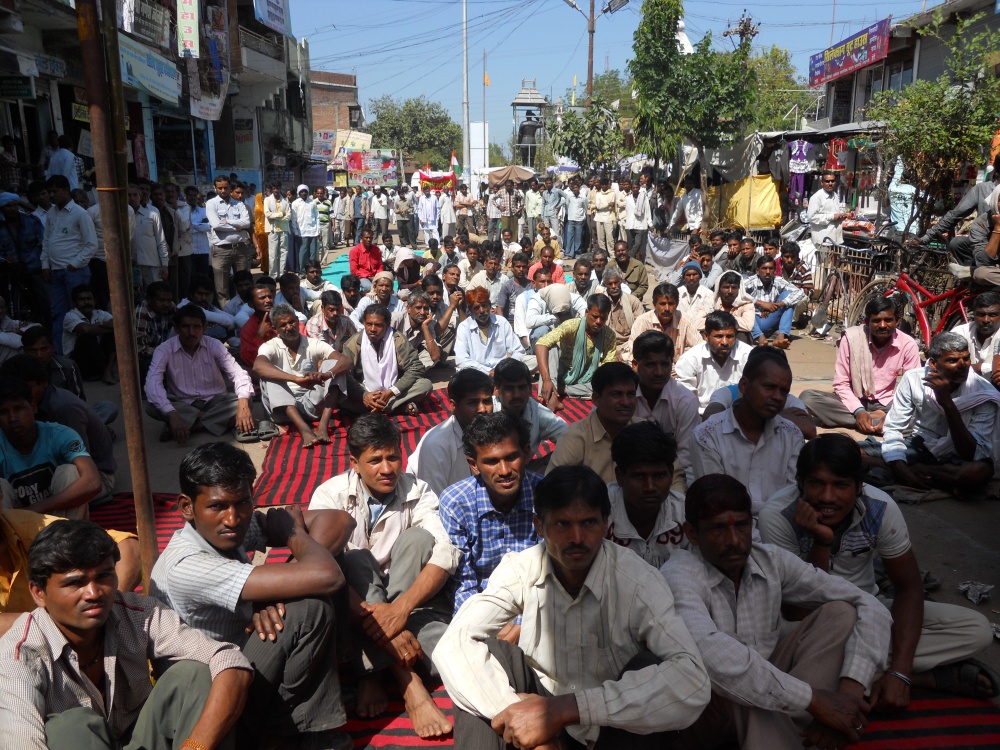African solidarity with the Venezuelan revolution and tributes to Hugo Chavez

Hugo Chavez's funeral, March 8, 2013.
[Below are statements issued by left and progressive organisations in Africa. More will be posted as they come to hand.]
* * *
Taking forward the revolutionary life and symbolism of hugo Rafael Chavez Frias
March 10, 2013 -- The Democratic Left Front (DLF) of South Africa joins the millions of poor and working people and their mass movements in Venezuela, the Caribbean, Latin America and across the world who celebrate the revolutionary and emancipatory life and symbolism of Hugo Rafael Chávez Frías. Since his tragic passing away on March 5, our hearts have drawn inspiration and courage from his example and symbolism.
As the 9 million people who attended his funeral on March 8 showed, Chavez represented and personified immense hope and possibility: hope for the wretched of the Earth, hope and faith in the ability of the mass of exploited and oppressed people to self-organise and challenge inordinate power relations in society, and thereby be their own liberators, and realistic hope in the possibility of constructing a socialist alternative to the barbarism of capitalism.
Media lies exposed: Venezuela's economic and social performance under Hugo Chávez, in graphs
Jim McIlroy, an activist from the Australia-Venezuela Solidarity Network, interviewed by ABC TV News, on March 8, 2013, on the significance of Venezuela's socialist President Hugo Chavez. He successfully refutes the misinformation of the hostile "interviewer".
March 10, 2013 -- Links International Journal of Socialist Renewal -- Following the tragic death of Venezuela's President Hugo Chávez from cancer after 14 years in office, the world's big-business media has gone into overdrive to dishonestly describe Chavez's record as being "authoritarian", "dictatorial" and having made the Venezuelan economy a "basket case", as was rudely interjected by an Australian Broadcasting Corporation "journalist" in the video above. Such media lies have been refuted by Fairness and Accuracy in Reporting and VenezuelAnalysis.
Marta Harnecker: 'Chavez's legacy: with the people, building a socialist alternative to capitalism'

Thousands turn out in Caracas to remember Chavez.
By Marta Harnecker, translated by Yoshie Furuhashi for MRZine
March 6, 2013 -- La Segunda -- When Hugo Chávez triumphed in the 1998 presidential elections, the neoliberal capitalist model was already floundering. The choice then was whether to re-establish the neoliberal capitalist model -- clearly with some changes including greater concern for social issues, but still motivated by the same logic of profit seeking -- or to go ahead and try to build another model.
Left Bloc: 'Portugal’s left must respond to a rising tide of rebellion' (updated March 14)

According to rally coordinators, some 500,000 protesters filled the Lisbon boulevard leading to the Finance Ministry on March 2.
Hugo Chavez Frias – visionary, fighter, companero (Asia-Pacific left statements) (updated Mar. 17)

[Below are statements issued by socialist and progressive organisations in the Asia-Pacific region. More will be posted as they come to hand.]
* * *
Statement of the Socialist Alliance (Australia)
March 6, 2013 -- The Socialist Alliance in Australia expresses its deepest sympathies with the people and government of Venezuela on the death of Companero Hugo Chavez Frias on March 5. His passing is a huge loss for all peoples, across Latin America and the globe, struggling for a world free of inequality, exploitation and oppression.
It is testament to Hugo Chavez’s great leadership that, while mourning his death, we are also confident that the Bolivarian Revolution and the new movement for socialism of the 21st century that Chavez inspired will be continued by the mass of people, to whom he worked so hard to give power.
Hugo Chavez, undefeated! Why the rich and powerful hated Chavez
'So let the corporate media lie about Chavez in their cynical way.
Sortu and Basque left nationalism’s strategic relaunch

For more coverage of the Basque struggle, click HERE. For more on Spain, click HERE.
By Dick Nichols
March 5, 2013 – Links International Journal of Socialist Renewal -- Nearly 10 years after the Spanish high court outlawed its previous political organisations, Basque left nationalism has finally given birth to a new legal party—Sortu (“to create” or “to be born” in Basque). The new arrival is a powerful progressive force for Basque independence—socialist, feminist, ecologically aware and staunchly internationalist.
Its goal is an independent socialist Basque-speaking state that unites the three northern Basque regions in the French department of Pyrenees Atlantiques with the four southern Basque regions covering Navarra and Euskadi (the Basque Autonomous Community) in the Spanish state.
`Foro Social Latinamericano', Green Left Weekly's Spanish-language supplement, March 2013 issue

March 2, 2013 – Links International Journal of Socialist Renewal – Providing facts and analysis, and publicising and organising Latin
India: Two-day general strike shakes country; crackdown on working class follows

By Kavita Krishnan
February 27, 2013 -- Links international Journal of Socialist Renewal via Radical Socialist -- The dominant capitalist media narrative about the February 21-22 all-India strike called by the country's major trade union centres was one of "hooliganism" by workers and inconvenience caused to the "public". As is usual, the main demands of the striking workers found little space in the media’s discussion of the strike.

